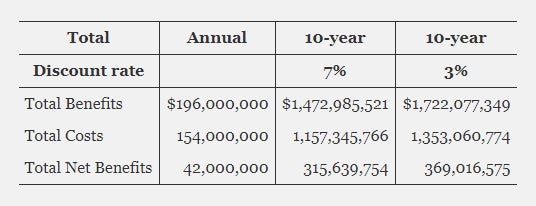As the Federal Motor Carrier Safety Administration (FMCSA) considers staggering deadlines for its Drug & Alcohol Clearinghouse, industry experts warn that millions of dollars in safety benefits could hang in the balance.
The clearinghouse final rule requires that employers query its database as part of any pre-employment driver investigation. It must be done at least annually for every driver holding a CDL who is currently employed. All queries require driver consent.
A decision by the agency on whether to delay implementing part of the rule is expected soon, given the current implementation deadline of Jan. 6, 2020. The American Association of Motor Vehicle Administrators (AAMVA), which represents state driver licensing agencies (SDLAs), requested the delay. AAMVA has data privacy and other operational concerns about the clearinghouse, and the FMCSA wants to extend the deadline for SDLAs another three years, until Jan. 6, 2023, to provide time to alleviate those concerns.
But because SDLAs will play a major role in ensuring that the system works as promised — keeping drivers off the road if they pose a safety risk due to drug or alcohol abuse — delaying the rule could have significant safety implications.
“There are three driver-related enforcement mechanisms to the clearinghouse — employer checks, roadside checks and State Driver Licensing Agencies,” David Osiecki, president and CEO of Scopelitis Transportation Consulting, told FreightWaves. “SDLAs are major cog in this wheel because they’re responsible for renewing or upgrading” commercial driver’s licenses (CDLs). “When they’re taken out of the process, the wheel doesn’t turn as smoothly as it should and could have a major effect on enforcement and the intended benefits of the clearinghouse.”
There are monetary implications for delaying part of the regulation as well. The agency estimates $196 million in annual benefits from crash reductions resulting from the rule. Factoring in associated costs, net annual benefits total approximately $42 million (see chart, below).

The American Trucking Associations (ATA) pointed out the potential for those future safety benefits to be degraded by a delay. “While ATA does not believe that FMCSA’s proposed three-year delay of the SDLAs requirement to access the Clearinghouse would significantly impact the current level of safety, ATA does believe the delay would impact the safety benefits established in the final rule,” ATA stated in comments submitted to the agency in October.
The group said it “strongly supported” FMCSA’s decision to require that SDLAs review information in the clearinghouse database before issuing a commercial driver’s license (CDL). “Due to that strong support, ATA’s members are disappointed the additional layer of oversight is expected to be delayed by an additional three years.”
ATA added, however, that even with the effect on safety, a partial delay “is necessary to resolve AAMVA’s concerns and ensure a seamless implementation of the States’ Clearinghouse-related requirements.” If a delay is approved, the association recommended that the agency encourage SDLAs to adopt procedures for checking the clearinghouse portal before issuing, upgrading, renewing or transferring a CDL.
Annette Sandberg, president of TransSafe Consulting and a former FMCSA administrator, agreed that SDLAs are a significant piece of the rulemaking and delaying their enforcement input could affect safety. However, employer enforcement can go a long way toward making sure the clearinghouse is effective, she said.
“Having run the agency before, if I were sitting in their shoes and there was a concern about data security, that has to take primary concern,” Sandberg told FreightWaves. “You don’t want someone’s private information being lost or someone hacking into the system and destroying it altogether.”
Sandberg added that getting the clearinghouse up and running, even if the deadline for SDLAs is extended, is extremely important so that employers can check if a prospective driver with a drug or alcohol problem attempted to slip through the system.
“Trucking companies I talk to say they want a way to be able to close that gap,” she said. “Some may try to look the other way, but even those can be discovered when a compliance review shows they’re not operating safely.”







